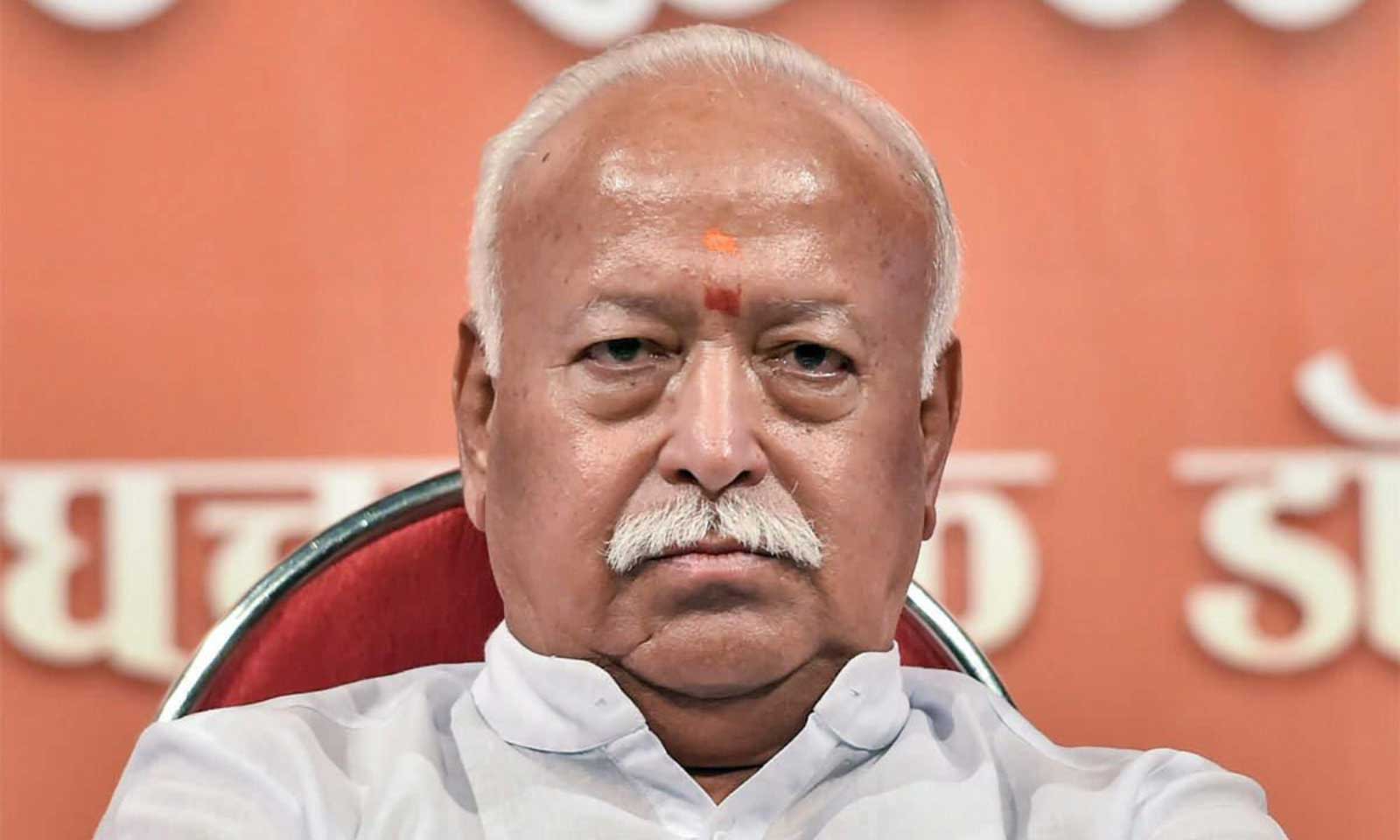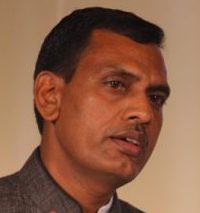Mohan Bhagwat, chief of the Rashtriya Swayamsevak Sangh (RSS), seems to be chasing controversies. He expresses diverse views on the same topic from different platforms, leaving both his supporters and critics befuddled. Does Bhagwat speak first and think later? Or is there a method to his madness?
RSS watchers see nothing new in the contradictions that inform the statements of Bhagwat and other RSS thinkers. The RSS top brass believe that they need to say things in keeping with the times – make the right noises at the right time. The RSS volunteers see it as a strategy while the hardcore advocates of Hindutva term it as digression. The Bharatiya Janata Party (BJP) politicians see elements of liberalism and progressivism in the shifting stand of the RSS bosses. The critics of the RSS see it as a conscious attempt at spreading confusion.
RSS supremo Mohan Bhagwat keeps on making mutually contradictory statements on a wide range of issues, including review of the Indian Constitution, origin of caste, reservations, Muslims, beef eating and so on. One day he calls for adherence to the Constitution, the next day he declares that the Constitution lacks “Indianness” and there is an urgent need to review it. Bhagwat’s latest books and policy statements of the RSS seem to suggest that the RSS chief wants to project himself as a tolerant, gentle, inclusive and progressive leader. After the BJP biting the dust in the 2015 Bihar Assembly Elections, he has become a supporter of reservation. Recently, he referred to the caste discrimination that lasted 2,000 years and said that reservations should continue as long as inequality persists.

It is being said that Bhagwat made this statement with an eye on the upcoming general elections. It is possible that the RSS chief has played this card to shore up the declining fortunes of the BJP. It is also possible that this is the preliminary to forging a new equation between the Dalits, Adivasis and forward castes in view of the fact that the well-off among the Backward Castes have been instrumental in frustrating the designs of the RSS on a series of issues ranging from the peasants’ agitation to caste census. These castes are drifting away from the saffron cabal. The Mahapanchayats held by farmers’ groups and Meos in the aftermath of the communal violence during the Brajmandal Yatra at Nuh in Haryana and the coming together of the farmers, Dalits, Adivasis and minorities are sounding alarm bells for the Sangh. That is the reason the Sangh chief made a very calculated comment couched in the language of the Dalitbahujan movement, hoping that it would enhance his acceptability among the Dalits and the Adivasis.
That India witnessed societal discrimination for thousands of years and that the caste system was designed by the Brahmins to further their interests, have long been part of the conversations of the Dalit movement. For the first time, the BJP has made atrocities against Dalits one of its key poll planks for the Rajasthan assembly polls. This, when the party has been allergic even to the word “Dalit”, using “deprived sections” in its place. The same BJP has not only embraced the word “Dalit” but has flooded the state with banners and posters decrying atrocities against Dalits.
Bhagwat’s statement on beef is designed to bring onboard the communities which are not only meat eaters but also beef eaters. Whether it is northeast or south India, beef is part of the daily diet of many communities. And the Sangh wants to draw them into its fold. By making these kinds of statements, the Sangh seems to be desperately trying to give its image a makeover. However, the problem is that no matter what the top leadership of the Sangh and its Pracharaks say, the ideals and the objectives of its committed cadres remain unchanged. For them, statements like “All Indians share a common DNA” and “We should stop looking for Shivlingas beneath every temple”, besides advocacy of reservations or even acquiescing to beef eating are merely short-term strategies. They are just not ready to give up their ultimate objective of turning India into a Hindu Rashtra.
No matter how hard the Sangh’s top brass try to look liberal and inclusive, their volunteers, supporters and well-wishers don’t walk the talk. The shifting stand may provide some solace to the new admirers of the Sangh but it does not bring about any change in society. The Sangh has been opposing the idea of purity and pollution for more than four decades now but the practice of untouchability and caste-based discrimination has only grown. The top boss may underline the need for continuing with reservations but the cadres care two hoots. And even the BJP – the political wing of the RSS – leaves no stone unturned to sabotage the reservation regime.
It was proclaimed that the Hindus and the Muslims are like brothers and that the Muslims are “Mohammedan Hindus”. Next, it was announced that they have a common DNA. But has that changed the attitude of the BJP towards the Muslims? Have incidents of mob-lynching become fewer? On the contrary, Islamophobia has intensified and the atmosphere of hate is showing no sign of abating. Dalits are being murdered in broad daylight and the government has rendered the reservation system impotent.
Those with the RSS mindset still abuse Dalits, Adivasis, minorities and all other oppressed communities. Whether it is social media or print media or TV channels, hate is pervasive. A statement here and an assurance there won’t make any difference. It is nothing but empty rhetoric. The sweet talk and the lip service will sway no one. In fact, there is hardly anyone who can’t see through Bhagwat’s solemn protestations. They know it is nothing but political opportunism.
(Translation from the original Hindi by Amrish Herdenia)
Forward Press also publishes books on Bahujan issues. Forward Press Books sheds light on the widespread problems as well as the finer aspects of Bahujan (Dalit, OBC, Adivasi, Nomadic, Pasmanda) society, culture, literature and politics. Contact us for a list of FP Books’ titles and to order. Mobile: +917827427311, Email: info@forwardmagazine.in)





